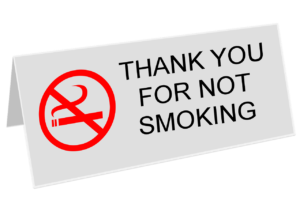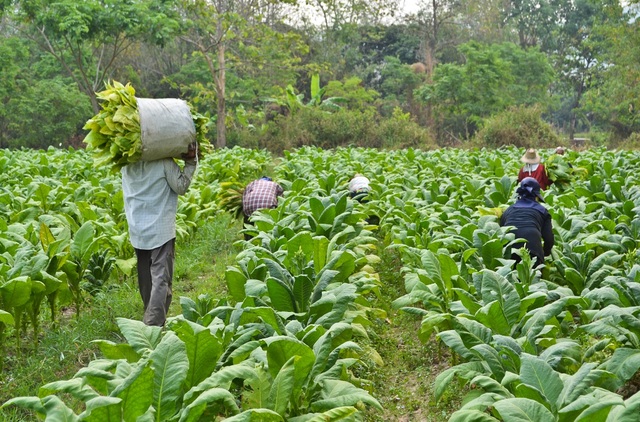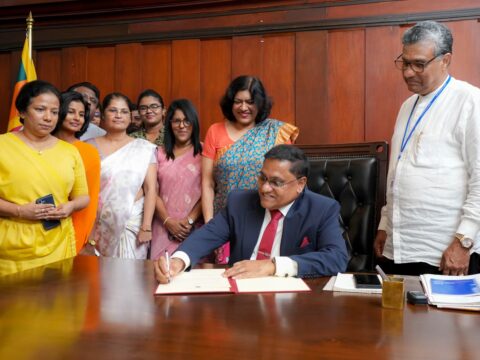COLOMBO: Over 100 towns across Sri Lanka have boycotted the sale of cigarettes with an aim to discourage smoking and making Sri Lanka a tobacco-free nation.
According to the Health Ministry, the Public Health Inspectors (PHIs) Union have launched several programmes across the country to educate locals on the ill effects of smoking and as a result, shop owners and businessmen from many towns have stopped selling cigarettes.
To date, 22 towns in Jaffna, in the former war-torn north, 17 towns in Matara, in the island’s south and 16 towns in Kurunegala, in northwestern Sri Lanka do not sell cigarettes, leading to a total 107 towns boycotting cigarette sales.
The Xinhua news agency quoted Health and Indigenous Medicine Minister, Rajitha Senaratne, as saying he was satisfied with the numbers, and hoped by next year this figure will increase to over 200 towns.
WHO officials said that while Sri Lanka has been able to make strong progress already on tobacco, almost one in two men still use tobacco which puts the health and wellbeing of themselves and their families at risk and continues to place a heavy burden on Sri Lanka’s health system.
Tobacco use is extremely harmful for health and is one of the world’s leading causes of premature death and is a cause of many life-threatening diseases including cancer, heart and lung diseases. Tobacco use kills more than seven million people annually with the World Health Organization (WHO), estimating that more than six million of these deaths are the result of direct tobacco use while around 890,000 are the result of non-smokers being exposed to second-hand smoke. Around 80% of the 1.1 billion smokers worldwide live in low- and middle-income countries, where the burden of tobacco-related illness and death is the heaviest.
Globally, 942 million men and 175 million women of ages 15 or older are current smokers. 11. In Sri Lanka, around 20,000 people die annually from tobacco use while around one fourth of the adults (25.8%) are current users of any form of tobacco. Tobacco use in Sri Lanka is higher among men (45.7%) when compared to women (5.3%).

The government also aims to ban tobacco cultivation by 2020.
Minister of Industry and Commerce, Rishad Bathiudeen recently cited reports showing Sri Lankan consumers spend more than Rs.200 million per day for cigarettes. Sri Lanka spends US$ 400 million a year to import milk powder but smokers spend US$660 million for tobacco use, which is 55 percent higher than Sri Lanka’s annual bill for the milk powder imports. Of all types of full time farming in Sri Lanka, tobacco farming is one of the most lucrative, with tobacco farmers earning regular profit margins of 20 percent or higher.
However, a research published by Green Space Consultancies revealed that tobacco farmers in Sri Lanka have little awareness of the proposed ban on tobacco cultivation by 2020 while the majority of the farmers expect that the ban wouldn’t be imposed. In addition, the officials at local level have also failed to provide any clarity to the farmers on the proposed ban.
Green Space Consultancies is advocating for a phased implementation of the ban across a four-year period and financial assistance to tobacco farmers to diversify into other crops, as the employment of over 500,000 stakeholders in three tobacco value chains in the country, will be in jeopardy if the ban is enforced in its entirety, all at once. Further, the socio-economic conditions of the farmers have gone up significantly because of the healthy income they earn from growing tobacco and implementing a cultivation ban without allowing time for farmers to look for alternative livelihoods will have serious consequences on their lives.
Sri Lanka’s monopoly tobacco trader – Ceylon Tobacco Corporation (CTC) has cried foul, saying they were not consulted by the authorities prior to the announcement of the proposed tobacco cultivation ban and insisting that tobacco cultivation injects Rs. 1.5 billion into the rural economy, providing employment to some 30,000 people. CTC also said it paid Rs. 92 billion in taxes as revenue to the government in 2015, making it the single largest source of public revenue.




